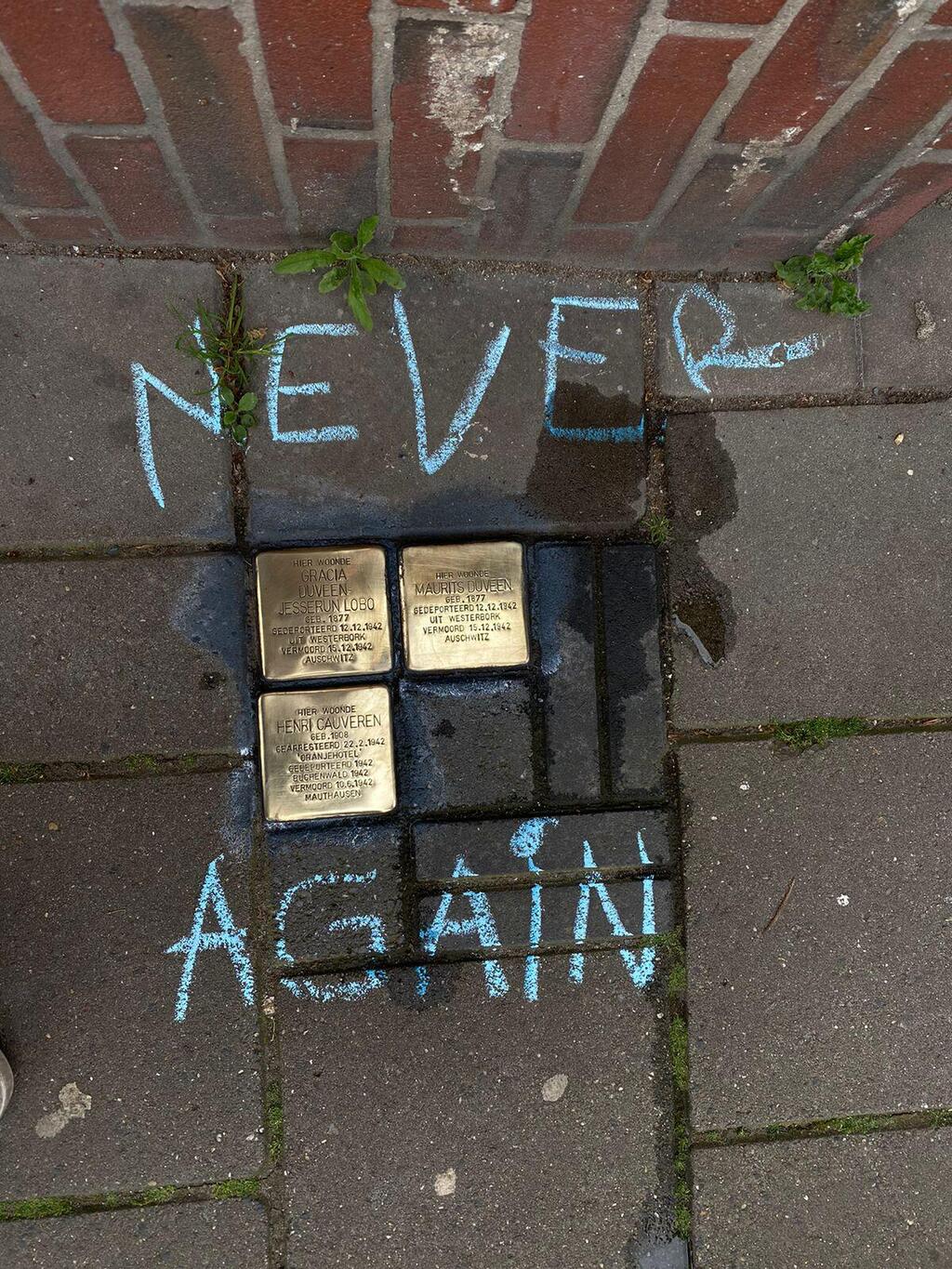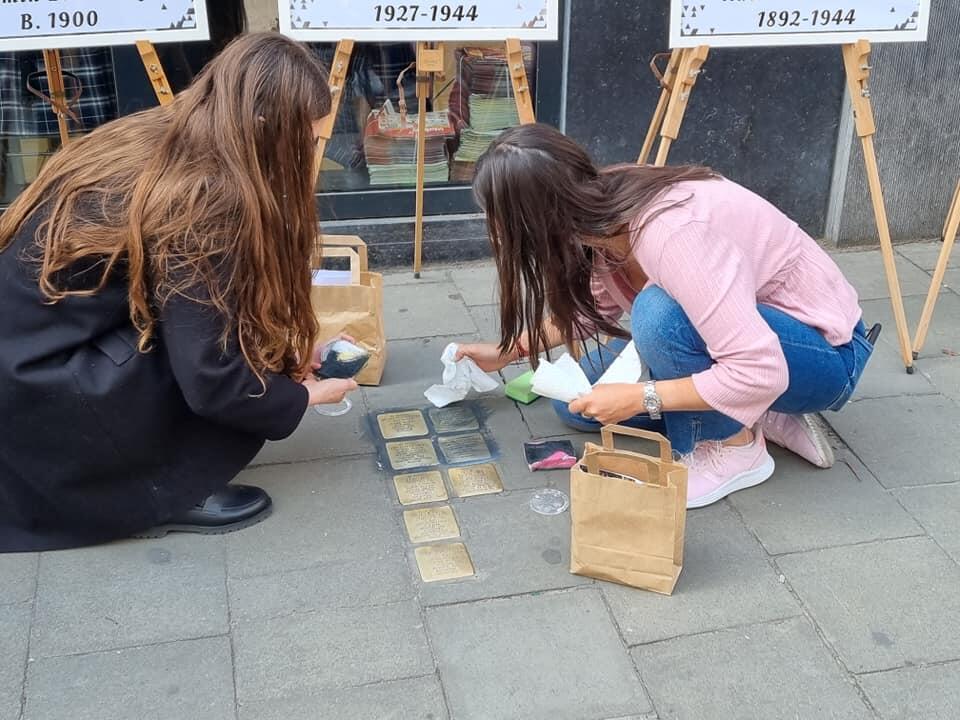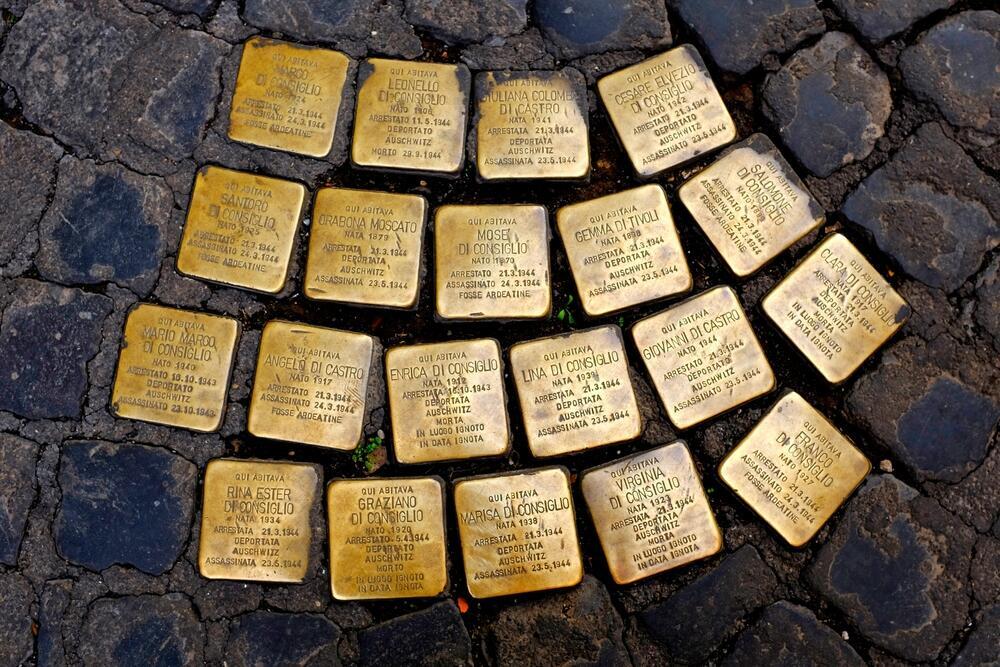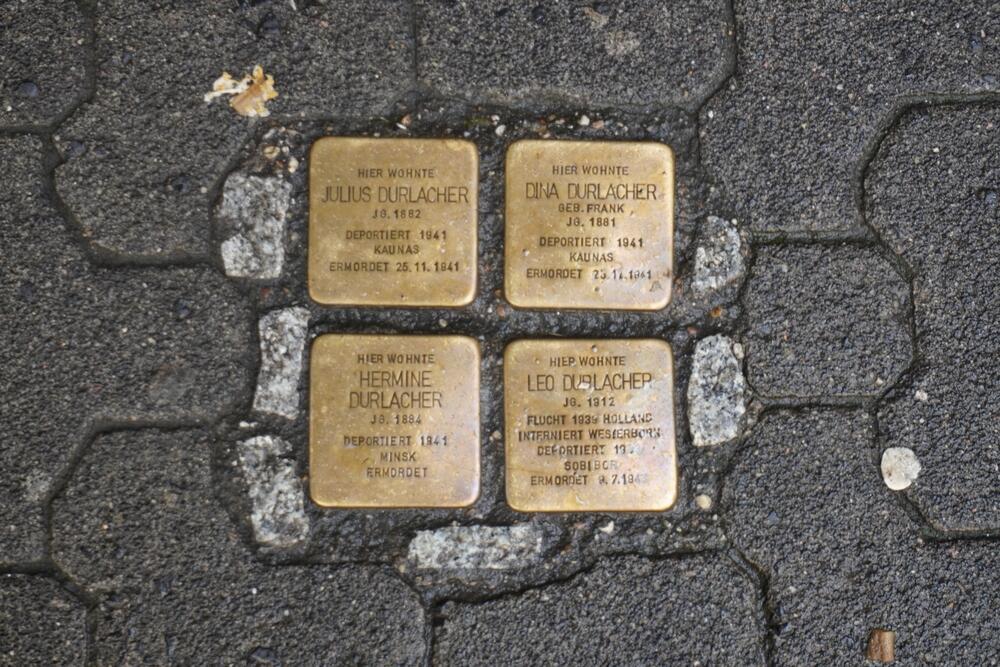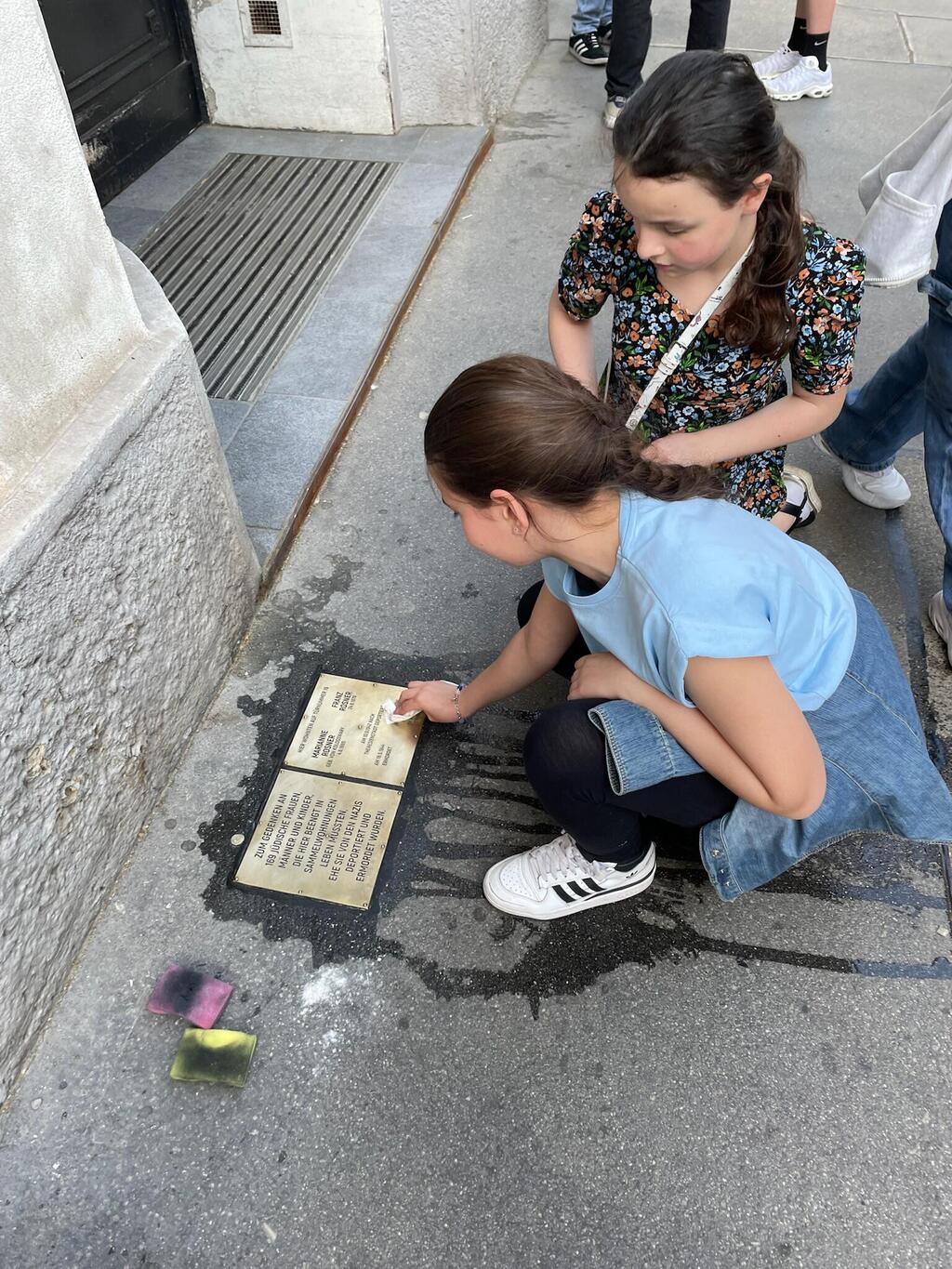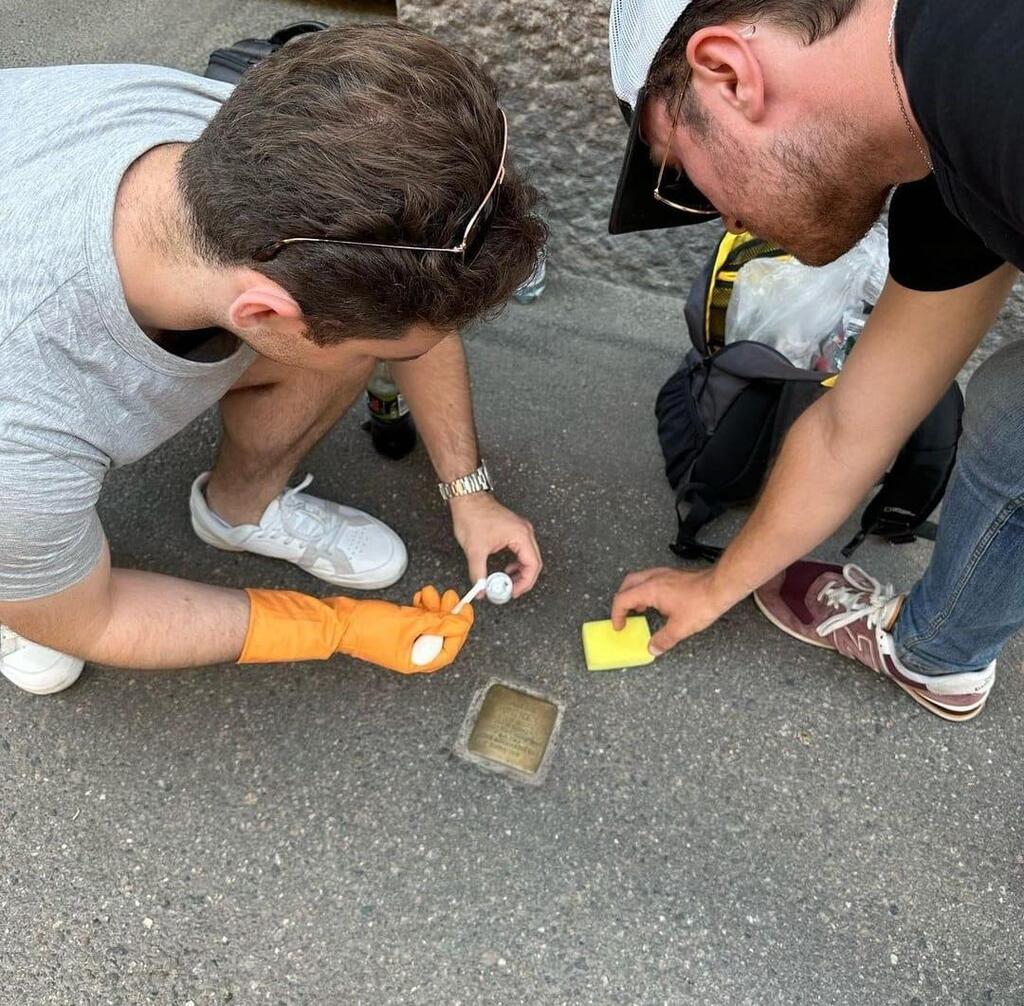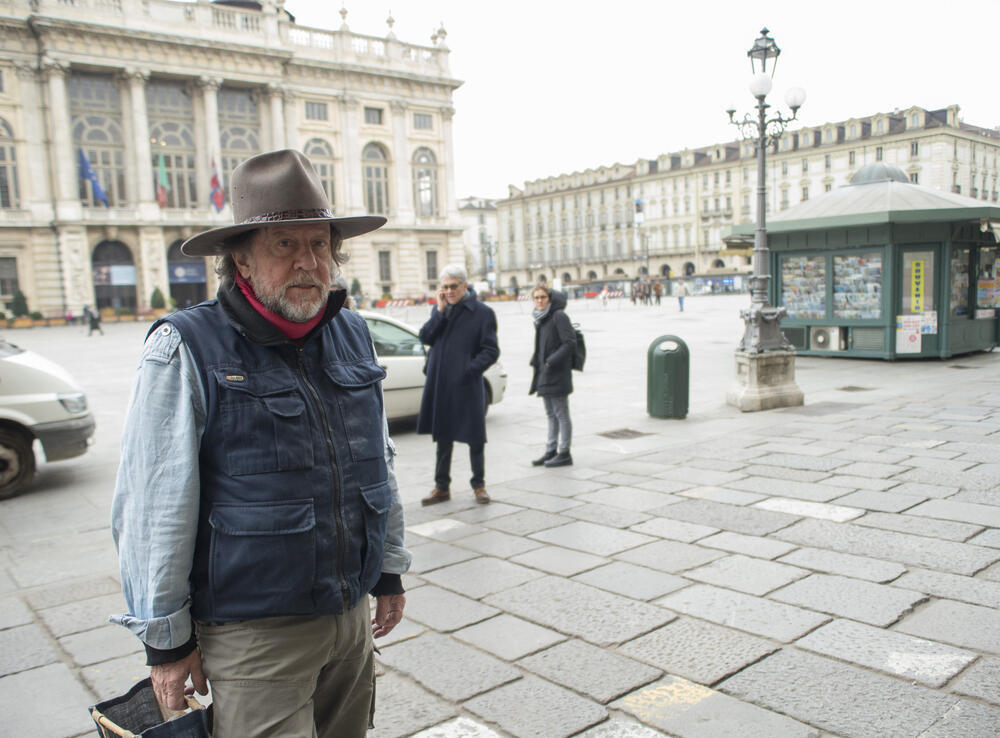Across Europe, Stolpersteine (Stumbling Stones) — memorial stones embedded in sidewalks —mark the homes of Holocaust victims, including Jews, political dissidents, LGBTQ individuals and others persecuted by the Nazis.
Each stone bears the victim's name, birth year and fate. In recent weeks, young Jewish volunteers have traveled to dozens of European cities to clean these stones as part of the "Make Their Memory Shine" initiative.
Stumbling Stones cleaning in Thessaloniki
(Video: Make Their Memory Shine)
The organization was founded by Ethan Bergman, who leads a group of volunteers from diverse backgrounds focused on Holocaust remembrance. The project involves cleaning the stones, engaging with locals and holding lectures and workshops to educate about the Holocaust.
"We usually organize cleaning events where volunteers gather for a ceremony, then disperse across the city to clean Stolpersteine and interact with residents," Bergman said. "We also try to arrange Holocaust education sessions. Growing up in Antwerp, I was shocked by how little people knew about Jews and the Holocaust other than Auschwitz and Anne Frank. Ignorance leads to hatred and demonization."
Stolpersteine, an initiative by German artist Gunter Demnig, are concrete blocks (10x10 cm/4x4 in) with brass plaques engraved with victims' details. The stones are placed at the entrances of their former homes as a lasting memorial. Demnig based each inscription on archival records.
Since its launch in 2021, "Make Their Memory Shine" has organized cleanups in over 92 cities across 23 countries, with over 1,200 volunteers. Students arrive with cleaning supplies to ensure the inscriptions remain legible. "For Holocaust Remembrance Day during the COVID-19 pandemic, I wanted Jews and non-Jews to unite in an active way instead of just watching a sad film," Bergman said.
Cleaning Stumbling Stones in Oslo
(Video: Make Their Memory Shine)
Initially supported by StandWithUs and the World Jewish Congress, the project now operates in nearly 2,000 cities, with large numbers of stones in Germany, Austria, the Netherlands and Italy. Bergman, currently completing his thesis in international relations at Leiden University, oversees the organization's education efforts and event coordination.
"We mainly work with local Jewish communities but also involve broader society — municipal workers, historians, refugee organizations, schools, Holocaust survivors and interfaith groups," Bergman said.
Get the Ynetnews app on your smartphone: Google Play: https://bit.ly/4eJ37pE | Apple App Store: https://bit.ly/3ZL7iNv
"The Holocaust is part of these cities' history, and we want to engage all layers of society." Participation is open to all, with event details shared via WhatsApp, social media, student groups, flyers and email lists.
Volunteers sign up online, specifying how many stones they wish to clean and whether they want to learn more about the Holocaust. They typically dedicate an hour or two to cleaning while fostering dialogue with locals about Holocaust history and modern-day discrimination.
Stumbling Stones cleaning in Italy
(Video: Make Their Memory Shine)
Since the October 7 Hamas attack, the initiative has faced significant challenges. Fewer non-Jewish volunteers are joining, some fearing backlash for associating with Jews, while others see the Holocaust as less relevant in light of the Israel-Gaza war.
Meanwhile, Jewish volunteers are wary of public events attracting antisemitic activists. "Hatred of Jews has become normalized in Europe since October 7," Bergman said. "We've had to cancel five or six events due to security concerns, including bomb threats against synagogues. Several Stolpersteine have also been vandalized or stolen."
Incidents of vandalism have increased since the war began, with stones in the Netherlands and Germany stolen and others in Austria defaced with paint. "Whenever a stone is damaged or removed, we share the victim's story on social media to ensure they're never forgotten," Bergman said. "These stones are often their only remaining legacy."
Despite mostly positive experiences, volunteers have encountered hostility. In Thessaloniki, two young men spat at them during a cleaning event. In Brussels and Stockholm, volunteers faced verbal abuse, with some accused of supporting genocide in the Middle East.
Stumbling Stones cleaning in Germany
(Video: Make Their Memory Shine)
"They were angry and dragged us into a political argument," Bergman said. "I tell volunteers to focus on remembrance rather than confrontation. The Holocaust and the Israeli-Palestinian conflict are unrelated."
Looking ahead, Bergman hopes the project will serve as a bridge between Jews and European communities. "I believe changing even one person's perspective can make a difference," he said. "This is a difficult time, but fear shouldn't stop us from uniting people." He hopes Jewish communities in Europe will thrive and that cleaning events will continue.
"There are about 100,000 Stolpersteine across Europe. For my grandparents' memory, I want to ensure Europe remains safe for Jews and that the Holocaust is never forgotten. By focusing on individual stories, we can foster mutual respect among Jews and non-Jews alike. Everyone deserves to have their story remembered."





